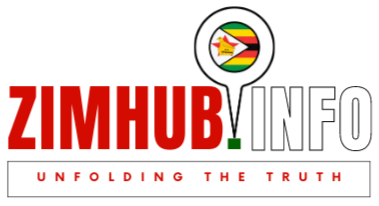TelOne cuts internet prices
BUSINESS REPORTER
TelOne Zimbabwe will cut the cost of its internet packages as part of efforts to remain competitive following the entry of global satellite-based internet service provider Starlink into the local scene.
The Starlink’s entry into Zimbabwe comes at a time when the southern African country is being ranked as having some of the most expensive internet and data fees in the world.
The plan to reduce prices was revealed by TelOne CEO, Lawrence Nkhala at the State-owned entity’s Annual General Meeting held in the capital Harare last Friday.
“We will introduce flexible pricing models to remain competitive. If we need to give discounts on certain products, we will do so, so that we remain in the game,” Nkala said.
He added: “At the end of the day, we cannot offer prices that are below our costs, so where we do have flesh to cut in terms of pricing, then so be it. Our goal is to attract and retain customers with competitive pricing,” he added.
Starlink, which announced last month that it would begin operating in Zimbabwe in the third quarter of this year, has partnered with IMC Communications. The company has since appointed tech industry guru, Denny Marandure, as its managing director as it prepares to start its kit rollout in the 3rd quarter of this year.
Prior to joining IMC, Marandure was the CEO of Liquid Intelligent Technologies in Tanzania and Zanzibar.
In an effort to counter the threat posed by Starlink, Tel One, has partnered Eutelsat OneWeb, a British-based low-earth orbit satellite communications network firm, to provide internet service.
“We will partner with low-earth orbit satellite providers and TelOne this week [last week] concluded a partnership with a low-earth OBT satellite provider. We will see to it that the launch of our services will be in Q3/Q4 2024.
We have partnered with Eutelsat OneWeb and the deal is basically that we will be reselling their services and we will be doing the deliveries,” Nkala said.
According to Nkala, the deal was a resale agreement where TelOne would offer its satellite services in Zimbabwe.
According to Nkala, TelOne requires about US$250m to enable deployment of infrastructure networks as well as digital platforms.
Additionally, he also said the company continues to pursue initiatives to raise funding for infrastructure development and network upgrade projects.
Through its own internally generated funds, the company made notable capital investments to support its growth strategic drive, with the business funding US$8.5m towards modernisation of systems and deployment of LTE base stations.
Nkala is, however, concerned that foreign legacy debts significantly impacted the company’s balance sheet, hindering the ability to attract new capital for infrastructure projects.
The company realised growth in 2023 registering an inflation-adjusted profit before tax and depreciation (EBITDA) of ZWL$227.9bn up from ZWL$54.6bn achieved in the previous year.
Revenue for the company in the period under review was ZWL$692.6bn ,representing growth of 154% compared to the previous year’s performance largely driven by exchange rate-induced growth as well as organic growth in most of its business segments.
Broadband contribution for the year improved by 3% to 79% from 77% achieved in 2022 whilst voice dropped by 27% in 2023 to 11% from 15% in 2022.
Nkala said TelOne has been progressively developing its network capabilities which resulted in volume growth in data sales during the year by 29%.
Operating expenses, however, increased by 116% from ZWL$218.3bn in 2022 to ZWL$470.7bn in2023 in inflation-adjusted terms and this was mainly driven by the depreciation of the local currency which had a pass-through effect on inflation.
The cost-to-income ratio reduced to 84%from 87% due to sustained efforts by management to contain costs as a countermeasure against the negative macroeconomic variables.

